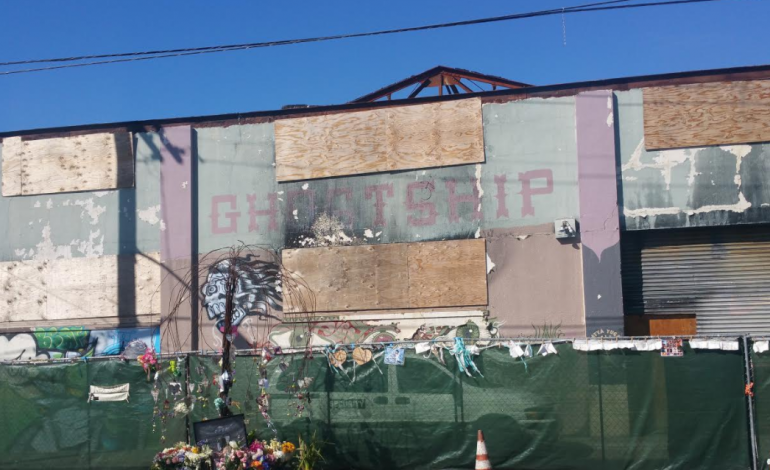

San Francisco’s CBS affiliate has reported that the City of Oakland has reached a $32.7 million settlement in the collective lawsuits filed over the city’s Ghost Ship warehouse fire tragedy in 2016 that killed 36 people.
The Oakland City Council agreed to the settlement on behalf of 32 of the 36 people who died as a result of the fire, which started during an illegal party at the 10,000 square-foot warehouse in Oakland’s famous Fruitvale district.
According to a press release from the City of Oakland, the settlement will allocate $23.5 million for the families of the perished victims. Additionally, the settlement will give $9.2 million to Sam Maxwell, a survivor of the fire who will live with major injuries and extensive medical expenses for the rest of his life.
“This was a horrific tragedy that deeply impacted every corner of our community. Mayor Schaaf, the City Council, City Attorney and City Administrator express their deepest sympathies to Mr. Maxwell and the families, whose losses are unimaginable,” read the city’s statement. “The City continues to assert, as the agreement provides, that it is not liable for these tragic losses. The City decided to settle this case because of the cost-benefit analysis. The City’s total insurance coverage is $22 million.”
Meanwhile, Ghost Ship master tenant Derick Almena is scheduled to begin a retrial of his criminal case in October. Almena was released from Santa Rita Jail earlier this year upon getting a reduced bail amidst the coronavirus pandemic that has now swept the country. He faces 36 counts of involuntary manslaughter.
A lengthy trial for Almena and co-defendant Max Harris, the Ghost Ship’s artistic director, finished in September of 2019 with the jury voting 10-2 to convict Almena but drop all charges against Harris, who was released from custody later that day. During the trial, Harris went on record saying that no real leadership roles of the property were established and his own role as artistic director was overstated. It has also been reported that Almena and Harris had violated their lease agreement by transforming the warehouse into a living area that housed up to 25 people while hosting underground music parties frequently.
The fire sparked a conversation in major cities across the country around the use of “art spaces,” resulting in the eviction of creative communities in major cities including Denver, Nashville and Baltimore. In December, a CBS-produced television series about the tragedy was scrapped after friends and families of the victims along with other members of the community expressed their concern with the project via social media.
Photo credit: Kellie MacDougall
